

TV
Top 5 Ash vs Evil Dead Episodes for Bruce Campbell and Horror Fans (Seasons 1-3)
If you’re a horror fan, Bruce Campbell needs no introduction. Best known for his iconic role as Ash Williams in Sam Raimi’s Evil Dead franchise, Campbell returned to his beloved role in Ash vs Evil Dead, a bloody, gory, and hilarious continuation of the series. Running for three seasons from 2015 to 2018, Ash vs Evil Dead is a fan-favorite show that blends slapstick humor with spine-chilling horror. For Bruce Campbell fans, here are the top five episodes from all three seasons that showcase his legendary performance as the wisecracking, chainsaw-wielding anti-hero, Ash.
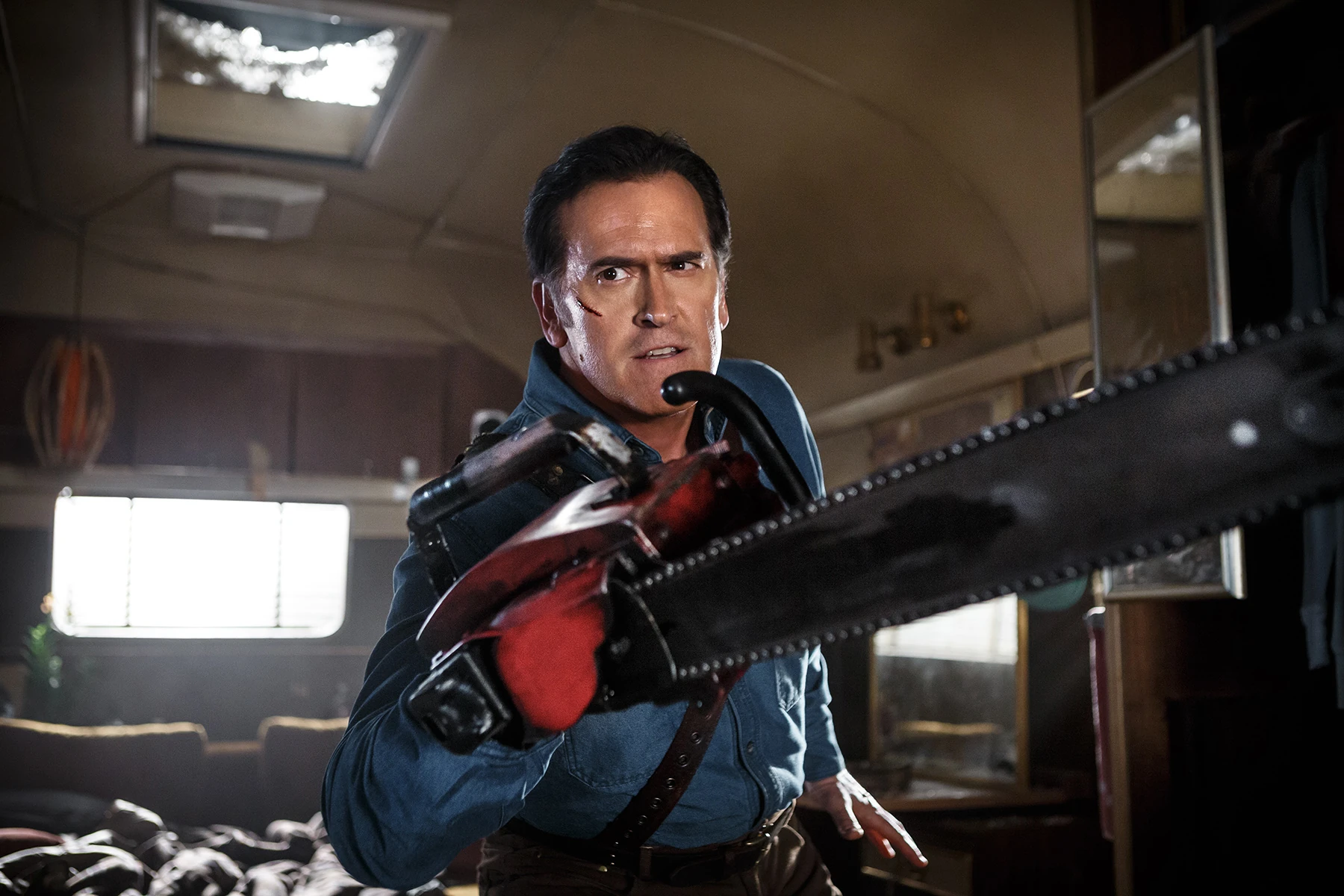
1. Season 1, Episode 1: “El Jefe”
The series premiere “El Jefe” brings Ash Williams back into the spotlight after 30 years of living a quiet life. When the Necronomicon accidentally releases the Deadites again, Ash reluctantly steps back into his role as humanity’s savior. This episode does a great job of reintroducing us to Ash’s brash, arrogant, but lovable personality, while setting the tone for the mayhem to come. Full of gore, humor, and over-the-top action, this episode is a perfect mix of nostalgia and modern horror.
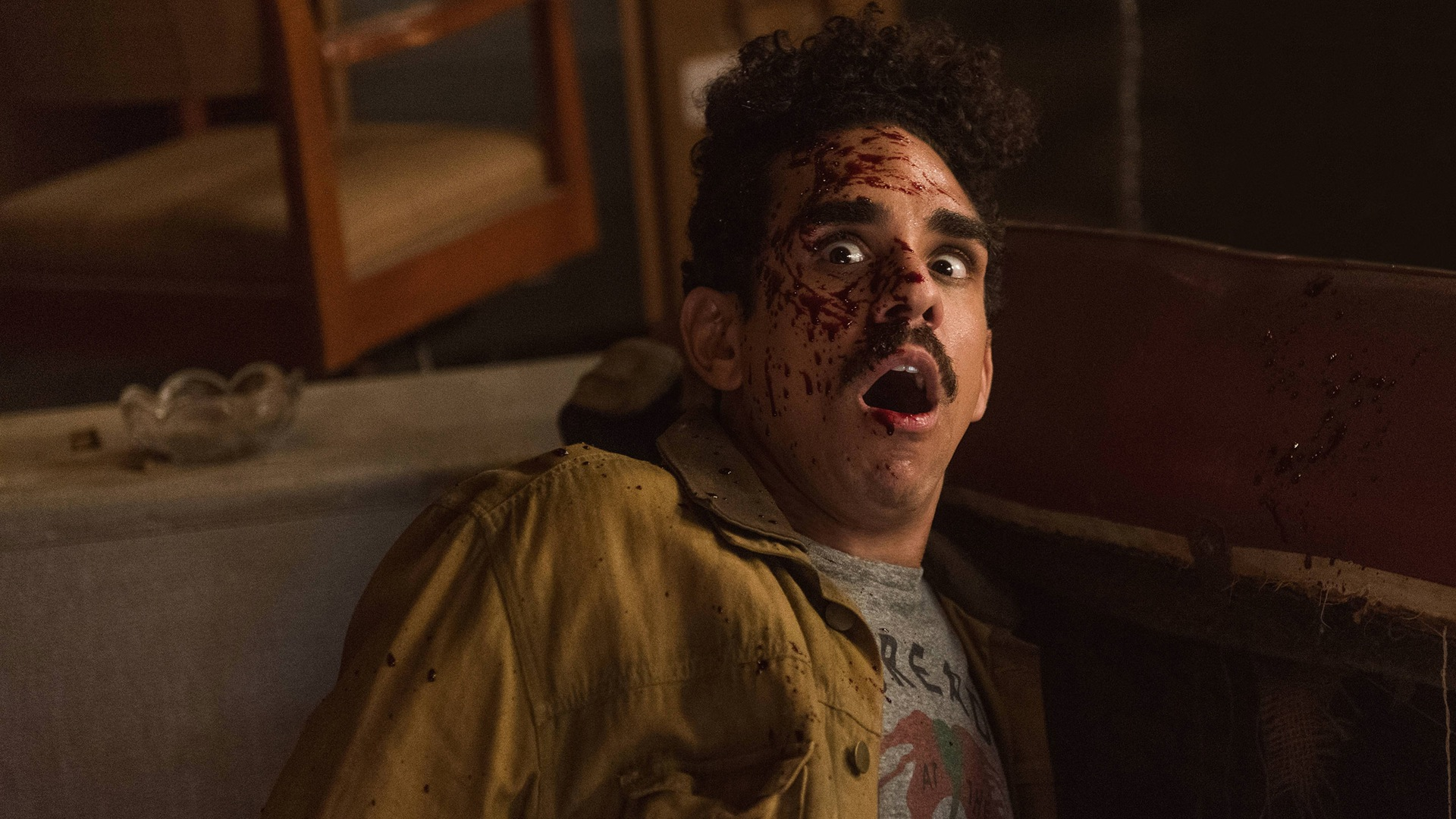
2. Season 2, Episode 2: “The Morgue”
Widely regarded as one of the best episodes in the series, “The Morgue” is a gory, gross-out extravaganza. Ash and Pablo infiltrate a morgue to retrieve the Necronomicon from a cadaver, leading to one of the most memorable scenes in horror television. Without giving too much away, Ash’s battle with a corpse in this episode is both hilarious and disgusting in a way that only Evil Dead could pull off. Campbell’s physical comedy and fearless approach to the bizarre is on full display here.
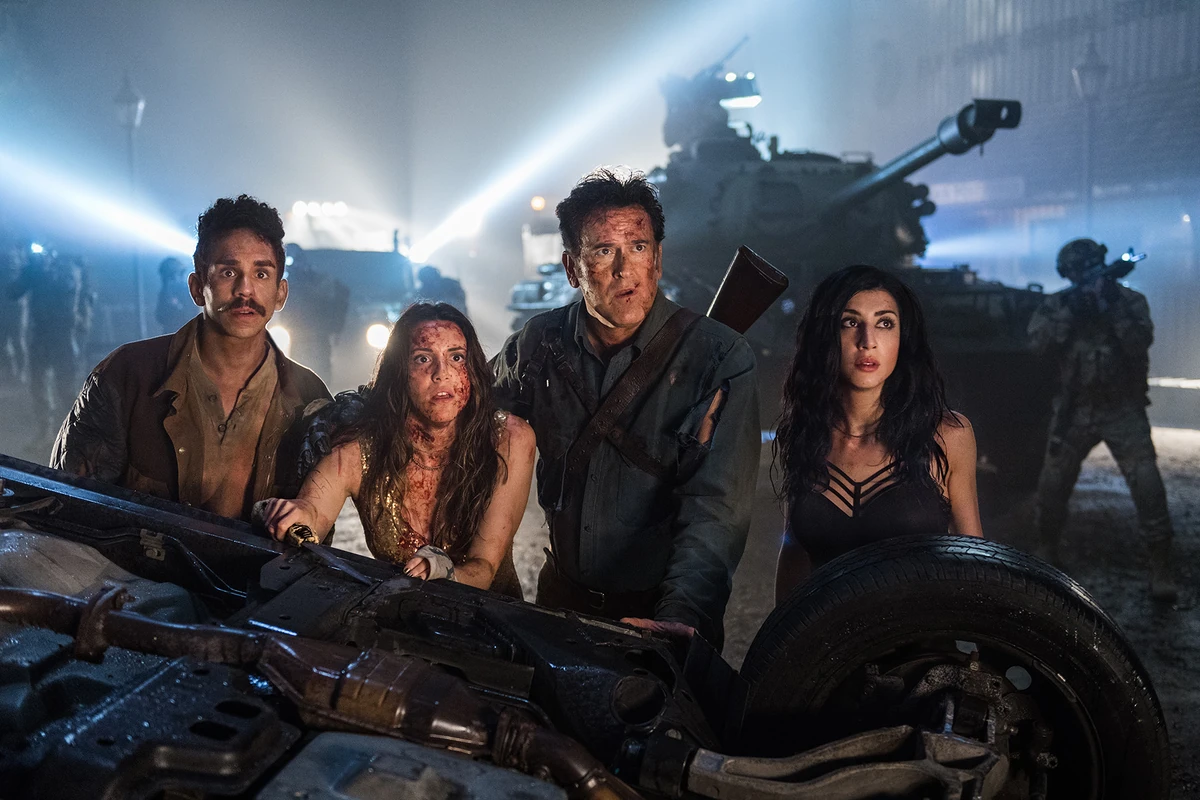
3. Season 3, Episode 10: “The Mettle of Man”
The series finale, “The Mettle of Man,” delivers on everything fans love about Ash vs Evil Dead—epic Deadite battles, blood-splattered action, and Bruce Campbell being the ultimate hero. As Ash confronts the Dark Ones and an apocalypse-level Deadite invasion, he makes the ultimate sacrifice to save humanity. This finale is bittersweet, providing plenty of epic moments for Ash while leaving fans wanting more. It’s a perfect end to a wild and thrilling series, with Campbell at his very best.
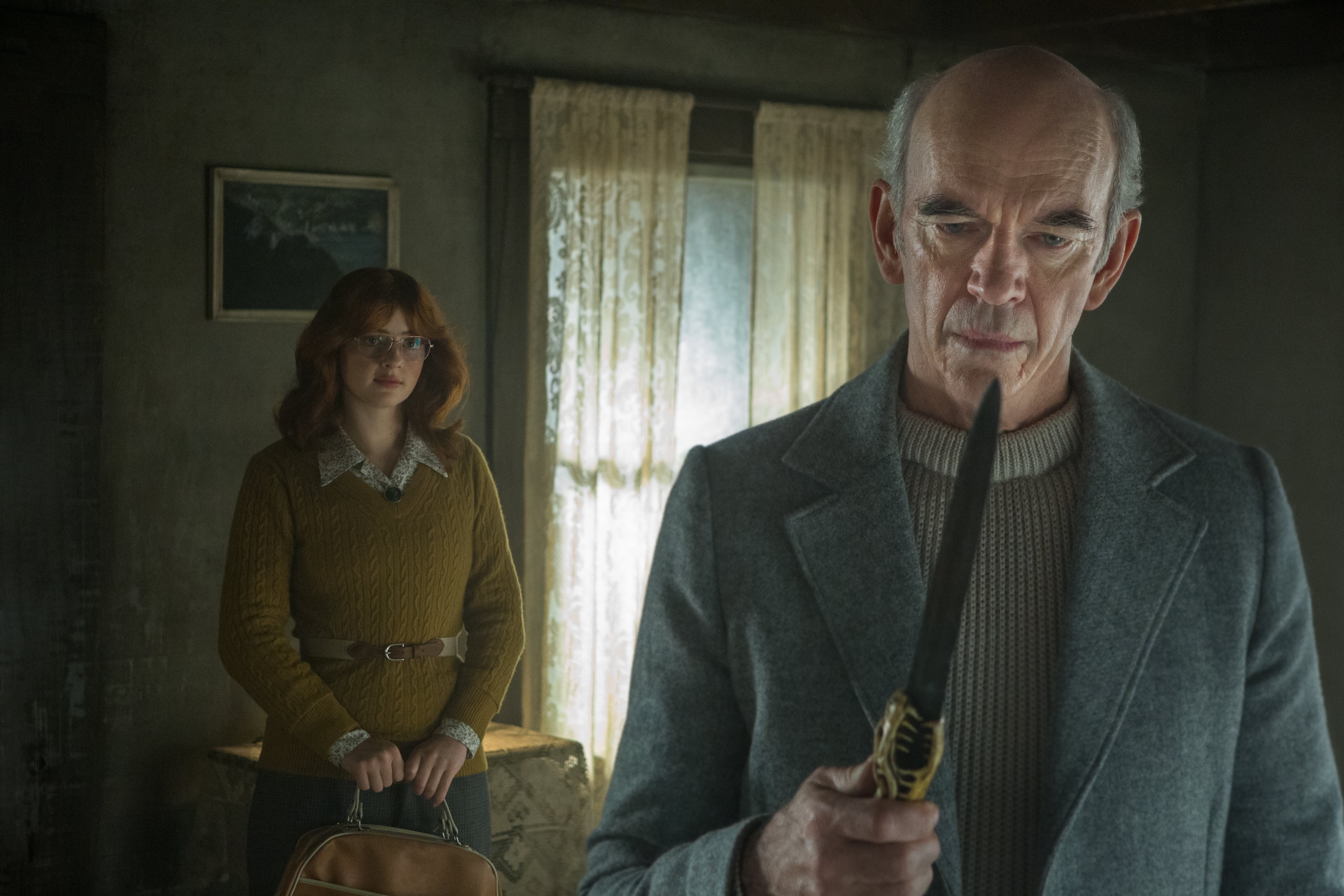
4. Season 2, Episode 9: “Home Again”
In “Home Again,” Ash is forced to confront his past by returning to the iconic cabin in the woods, where the Evil Dead saga first began. This episode is packed with nostalgia for long-time fans, bringing back all the familiar chills and thrills of the original Evil Dead films. The episode also features a strong emotional core, as Ash comes face-to-face with the memories of his friends and family who were lost to the Deadites. Bruce Campbell delivers a more layered performance in this episode, blending his usual snark with genuine pathos.
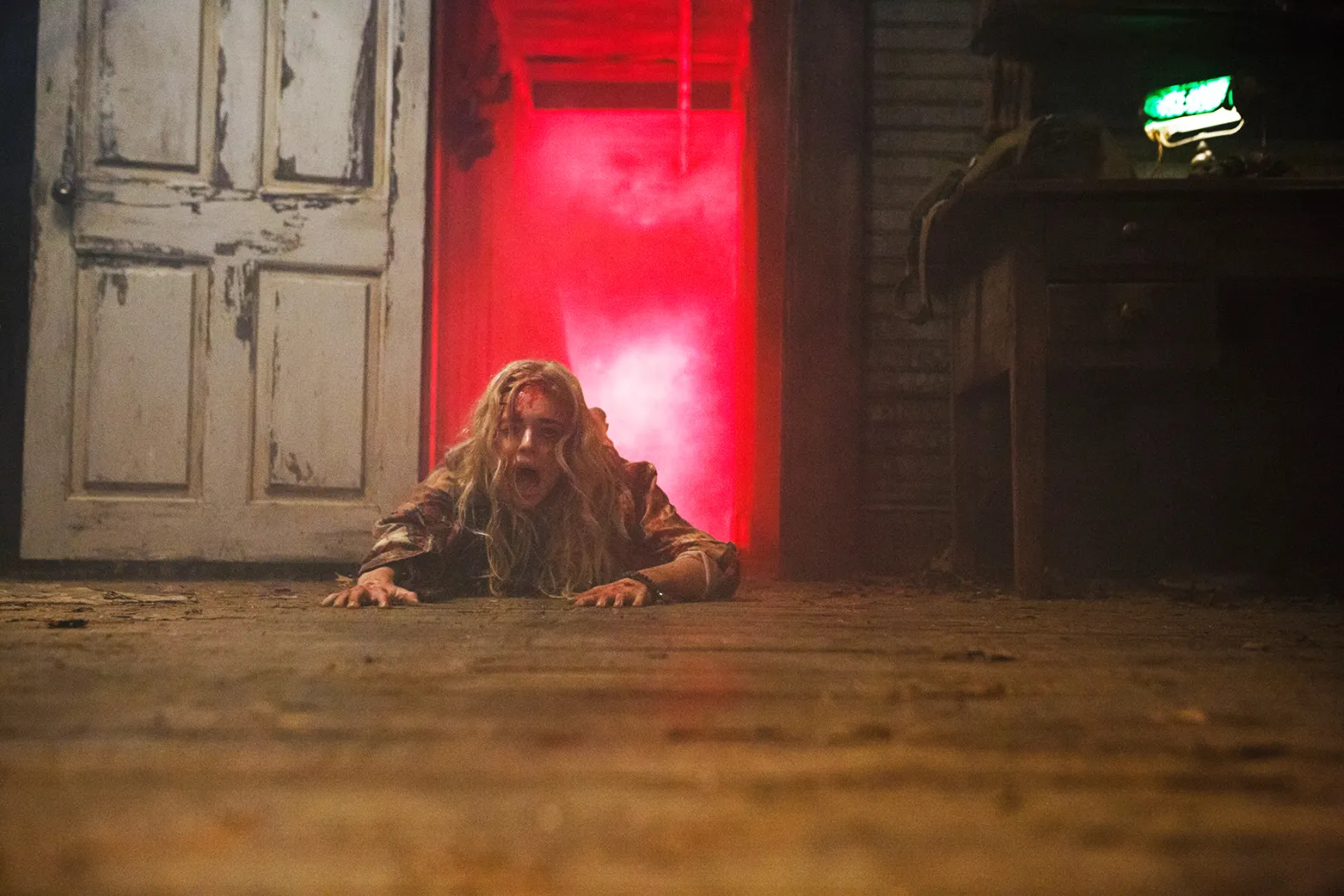
5. Season 1, Episode 8: “Ashes to Ashes”
“Ashes to Ashes” takes Ash back to the cabin for the first time in the series, where he must deal with his own demonic doppelgänger, Evil Ash. This episode plays with the classic Evil Dead themes of possession and madness, delivering a blend of psychological horror and dark comedy. The showdown between Ash and his evil twin is a series highlight, full of blood-soaked action and classic one-liners. Campbell’s dual performance as both hero and villain makes this episode a standout.
Why Horror Fans Love Ash vs Evil Dead
Bruce Campbell’s portrayal of Ash Williams is a large part of what makes Ash vs Evil Dead such a beloved show among horror fans. His ability to combine humor, physicality, and sheer badassery into one character has solidified his place as a horror icon. Whether he’s decapitating Deadites with his chainsaw or delivering snarky one-liners, Campbell’s Ash is always the highlight of any episode. His performance elevates the show from standard horror-comedy fare into a cult classic.
For fans of Bruce Campbell and the Evil Dead franchise, Ash vs Evil Dead is a must-watch series that honors the legacy of the films while pushing the boundaries of horror-comedy. These top five episodes showcase the very best of Ash’s wild, gory, and hilarious adventures. Whether you’re in it for the splatter, the laughs, or Campbell’s unbeatable charm, these episodes are essential viewing.
TV
With the tragic news of Michelle Trachtenberg’s death, we at That’s My Entertainment wanted to pay tribute.
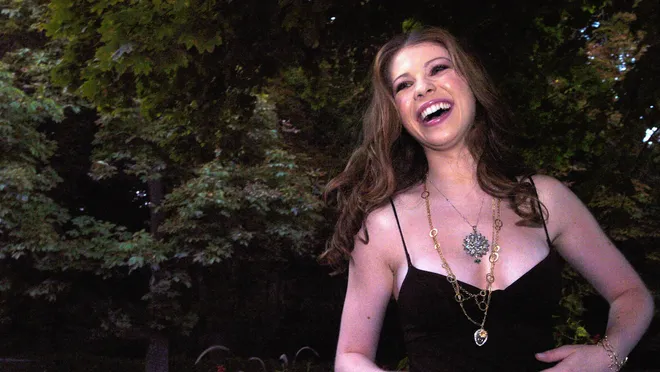
With her ice-blue doe eyes, enviable long, shiny brown hair, and button nose; Michelle Christine Trachtenberg looked every bit the prolific child star she was. Often described as radiating the type of vulnerability that Hollywood just loves in its young stars.
Trachtenberg acted in commercials from the age of 3. At the age of 10 she starred in Harriet the Spy (1996) as the titular spy. However, most of her fans will forever know her as Dawn Summers the (sometimes bratty) kid sister of Buffy Summers star of the cult TV show; Buffy the Vampire Slayer (1997-2003). Trachtenberg joined the main cast for the shows fifth season in 2000.
Dawn’s introduction heralded the dawning of a newer, more adult era of what was still seen as a teen supernatural drama. Trachtenberg’s character and introduction is still somewhat controversial in the Buffy fandom. Though loathed by some, no one could deny Trachtenberg’s obvious talent and how well she fit in with the main cast. Trachtenberg had worked with the show’s star, Sarah Michelle Gellar, in the long-running show All My Children (1970-2013), Gellar even recommended Trachtenberg for the part of Dawn. Buffy’s producers loved Trachtenberg despite the fact that Dawn’s character was initially written as a younger one. This is why a lot of Dawn’s dialogue and actions initially seem like that of a much younger child. This served to annoy certain fans even more.
Despite the ire, Buffy and Dawn’s sibling, and, oftentimes, paternal relationship became a touchstone of the 7-year-long series. Viewers watched Dawn develop from an immature girl to a capable young woman who calls others (particularly men) out on their bullshit. Many women identified with Dawn’s journey of attaining her autonomy. Even the biggest Dawn critics can’t argue that Dawn was a pivotal character in many of Buffy’s groundbreaking episodes, such as (spoilers!); The Body where the sister’s mother dies to Buffy’s resurrection in Bargaining. Dawn processed loss and dysfunction at a very young age. An inside joke in the Buffy fandom is that you know you have matured when you become a Dawn sympathiser.
After Buffy Trachtenberg took on maturer roles such as Jenny in the 2004 teen sex comedy EuroTrip. The trailer of which included a deleted scene with Trachtenberg’s character flashing her bra at passing cars whilst hitchhiking. Scenes such as these pivot greatly from the innocent Dawn Summers.
Trachtenberg would continue to work regularly, guest starring in TV shows such as Six Feet Under (2004) and House (2006). In 2008 Trachtenberg took on the role of manipulative socialite Georgina Sparks in Gossip Girl (2007-2012). Her Gossip Girl co-star; Blake Lively, described Trachtenberg on an Instagram post as; “…electricity. You knew when she entered a room because the vibration changed”. Trachtenberg was certainly energetic in interviews and threw herself into every acting challenge with aplomb.
Growing up in front of the camera meant that Trachtenberg fell victim to the objectification of her changing body. At the time it was unfortunately common for certain sites to be devoted to counting down the days until a certain starlet turned 18. In response to her own ‘Trachtenberg to 18’ counters: “You’re never gonna get a chance! So what’s your counter for?”
Cut to 2021, fellow Buffy castmate Charisma Carpenter opens up about the cruel treatment she received working under Buffy and its spinoff Angel (1999-2004) creator Joss Whedon. Carpenter bravely spoke of the misogyny, sexual harassment, and bullying she endured from Whedon that still affects her to this day. Carpenter’s claims became the pin that finally deflated Whedon’s godlike presence in the entertainment industry.
Trachtenberg stood with Carpenter; posting on her own social media that as a now 35 year old being “brave enough” to share her story about Whedon. She agreed with Carpenter saying: “This must. Be Known. As a teenager. With his not appropriate behaviour…very. Not. Appropriate.” She would later add to this statement by saying there was a rule on-set that Whedon was not allowed alone in a room with her again. Trachtenberg would have been around 15 working on Buffy.
Michelle Trachtenberg feeling strong enough to stand up to an alleged abuser such as Whedon and others like him mirrors not only Dawn’s growth but the overarching arc of Buffy the Vampire Slayer. The dark irony of Whedon’s alleged true nature as he created some of the greatest feminist icons is not lost. However, with Trachtenberg, Carpenter, Gellar, and many other actresses standing up for themselves and each other is really what the fictional show was about.
Trachtenberg was a great actress but she was also instrumental in helping to dismantle the sexist power dynamics within the industry for future generations of performers.
Much like her character Dawn, Trachtenberg found her voice and her strength in the face of insidious forces. As tragic as her untimely death is, she will always be remembered not just for her talent but for her bravery in facing years of oppression and objectification. Rest In Power Michelle Trachtenberg, you are truly a feminist icon both on and off of screen.
TV
CBS’s new show Watson breathes new life into the beloved Sherlock Holmes universe,

CBS’s new show Watson breathes new life into the beloved Sherlock Holmes universe, offering a modern adaptation that both honors its roots and explores fresh, contemporary themes. As a long-time fan of Sherlock Holmes, I was eager to see how this reimagining would unfold, and I am thrilled to say that Watson delivers a compelling and dynamic take on the classic characters.
Morris Chestnut’s remarkable portrayal of Dr. John Watson is at the heart of the series. Traditionally seen as the steadfast companion to Sherlock Holmes, Watson takes center stage in this adaptation, and Chestnut’s performance is nothing short of outstanding. Transforming Watson into a leading figure whose personal journey is as captivating as the mysteries he helps solve. Chestnut’s Watson is a character in his own right, not merely a sidekick, and his modern sensibilities breathe fresh air into the role.
The show’s setting in contemporary times is executed with finesse. By weaving modern-day elements into the narrative, Watson manages to stay true to the essence of Sir Arthur Conan Doyle’s original stories while making them accessible and relevant to today’s audience. The dynamic between Watson and the world around him is engaging and entertaining, offering new perspectives on themes such as justice, loyalty, and intellect. Fans of the original tales will appreciate the clever nods to classic storylines, while newcomers will find plenty to enjoy in the updated context.
Spoiler alert:
One of the most striking elements of the show is Randall Park’s portrayal of James Moriarty. Traditionally envisioned as a calculating and sinister adversary, this version of Moriarty offers a fascinating twist. Park’s performance combines darkness with a sharp, comedic edge, creating a character who is as unpredictable as he is engaging. This fresh take on Moriarty elevates him beyond a mere antagonist, making him a multidimensional figure who should keep viewers guessing at every turn.
Overall, “Watson” is a bold and refreshing addition to the Sherlock Holmes universe. Featuring compelling performances, clever integration of modern elements, and innovative character dynamics, the show provides something new and exciting for both longtime fans and newcomers to the world of Holmes and Watson. It’s a must-watch for anyone seeking a smart, entertaining, and thoroughly engaging adaptation of these timeless characters.
TV
Did JD from Scrubs Have a Dark Past?

TW: Discussions of child abuse and neglect.
The sitcom Scrubs ran from 2001- 2010 delighting viewers with the escapades of daydreaming Dr ‘JD’ Dorian and his friends. Unlike most TV sitcoms Scrubs perfectly balanced the comedic and the tragic. Being set in a teaching hospital with most of the main cast being doctors; there was plenty of fodder for some truly heart-wrenching storylines.
Like with most sitcoms, if you look under the jolly veneer (and have too much time on your hands) a much darker story emerges. In Scrubs, I would argue, this may be the past of its titular protagonist JD (played by Zach Braff). Some fans (ok, me) speculate that not only did JD have a less than ideal childhood but an abusive one.
Hints of this could be interpretated throughout the series:-
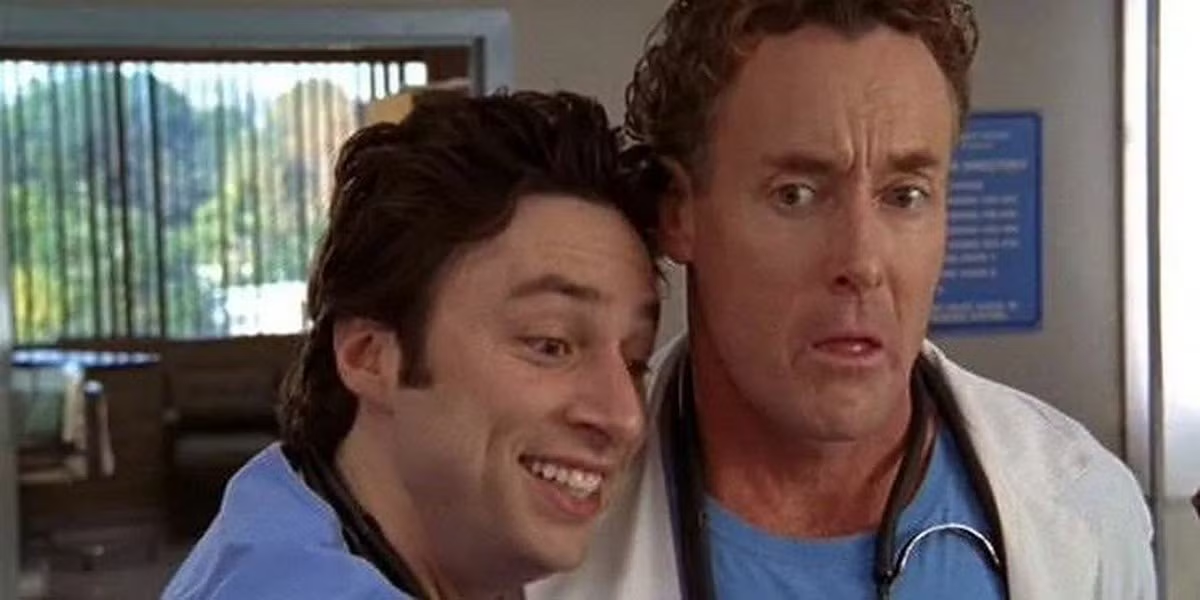
1. Attachment to Dr Cox
One of the most popular aspects of the series is the oddly touching relationship between mentor and mentee: Dr Cox (John C McGinley) and JD. It’s perfectly normal to admire and want to emulate an older colleague. But JD’s admiration of Dr Cox always seemed to go a step further. JD looked to the older doc as not only a mentor but a father figure.
JD explicitly states this throughout the series. Most notably in the finale; when during his much sought after hug JD claims Dr Cox smells “like a father figure”. This is odd as Dr Cox is only about 13 years JD’s senior. We know JD’s biological father (played by the late John Ritter) was pretty much absent during JD’s childhood. Is this yearning for a parental figure a way to fix JD’s damaged childhood?
As loathe as I am to criticise a fan favourite but Dr Cox openly mocks and belittles JD, almost never referring to his protégé by name. Instead by a vast archive of disparaging nicknames. The show does establish that there is love and respect om both sides, from Dr Cox deep down (deep, deep down). But why does JD not only put up with as well as seek out this treatment? Very masochistic. Or, has JD been subconsciously taught that taunts and aggression equate to love?

2. Feels Affinity with Dr Cox and Elliot
The show establishes early on that Dr Cox had an abusive homelife as a child. He openly reminisces about his parents being violent alcoholics. Is this the real reason that JD clamours for Dr Cox’s attention? Does JD see Dr Cox as an inspiration of someone who came from a similar background to his and became a well-respected doctor and family man?
Is the same true of JD’s on/off girlfriend, future wife and fellow doctor; Elliot? The show establishes that Elliot’s parents are mentally, emotionally, and financially abusive. Are JD and Elliot drawn to one another (partly) because they are both traumatised by their past? Even when it is proven time and time again that they are not suited.

3. Hostile Relationship with Older Brother
JD’s older brother Dan (Tom Cavanagh) appears several times in the show. Despite regularly visiting his kid brother, JD makes clear that these visits are not welcomed. JD’s ire is uncharacteristic as he’s shown as an ardent people pleaser throughout the show. Yes, Dan did bully JD throughout their childhood, though it’s unclear whether this was normal sibling rivalry or more.
In Series 3 Episode 5 ‘My Brother, Where Art Thou?’ JD attempts to cut off contact with Dan claiming that Dan never looked out for him. Even as children of divorce why is JD so upset his brother didn’t protect or “come through” for him? In the same scene JD comments about how their mother “married anyone that rang the doorbell”. Reading into this (hey, it’s what we’re here for) did Dan not protect JD from these multiple husbands?

4. Audience Never Actually See JD’s Mother
To me this is the most obvious that something is suspicious about the Dorian matriarch. Despite seeing every other cast members mother (except Dr Cox but its implied that his parents are dead) we never see JD’s. He, at the very least, seems to have a good relationship with his mother. Mostly speaks highly of her and she calls often. It doesn’t follow the trope many sitcoms use; having a character the audience never physically sees being used for comedic effect.
We hear JD’s mum (Barbara) speak in a flashback (Series 3 Episode 21 ‘My Self-Examination’). While Barbara was tucking young JD into bed she was saying some quite toxic things to her child, like how no women will ever be good enough for him. It is clear this scene is supposed to be somewhat creepy as Barbara is stroking the child’s face in an inappropriate manner. Adult JD even refers to his mum as “sexy” in the same episode. Very Freudian but in the light of everything else we are discussing: very disturbing!
5. JD’s Mother Drank
Linked to number 4 JD admits in Series 8 Episode 2 ‘My Last Words’ JD admits his mum “drank a lot”. Does this statement answer some questions about JD’s odd childhood?
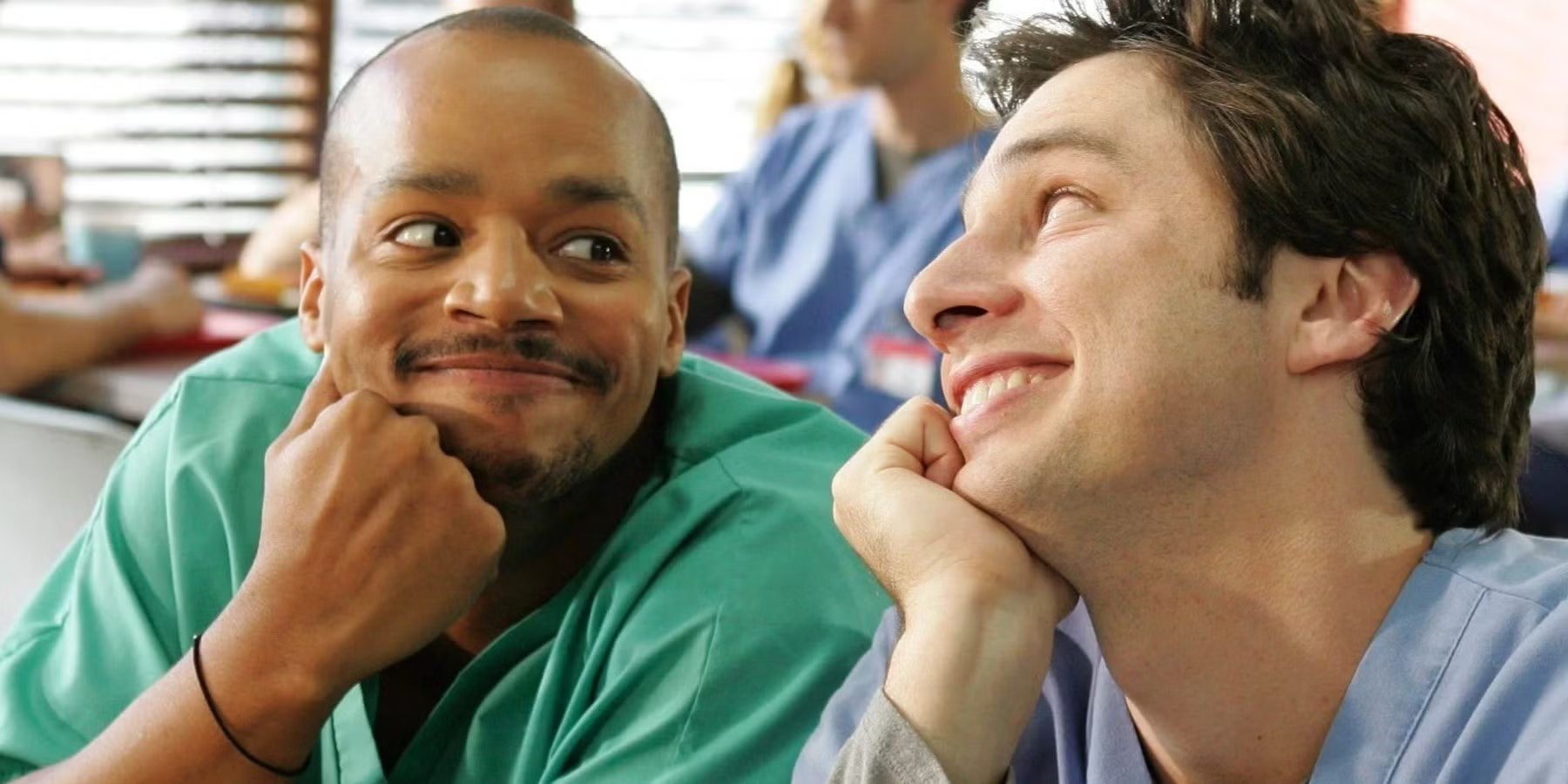
6. JD is a People Pleaser
As we have already mentioned JD is a pathological people pleaser (what’s that like?). As a doctor he goes above and beyond for his patients. He does everything from finding patients estranged family members (Series 4 Episode 11 ‘My Unicorn’) to shaving his head in solidarity with a chemo patient (Series 5 Episode 15 ‘My Extra Mile’). Of course this is all very commendable but JD particularly enjoys the gratitude. Why does he need this validation? Is this a coping mechanism from a turbulent background who had to go above and beyond to get the love that should have been unconditional?
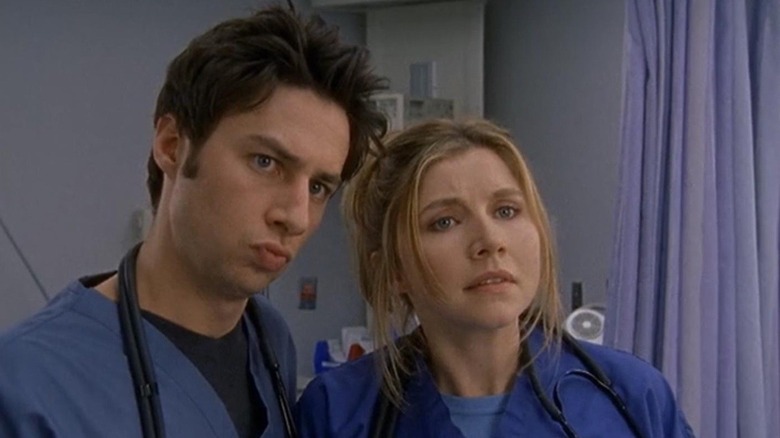
7. Extremely Tactile
Another of JD’s character traits is he extremely tactile. This is of course played up for comedy with his ‘sneak hugs’ (Series 6 Episode 13 ‘My Scrubs’) delivered to the stand-offish Dr Cox or the fact he has his friends on a ‘hugging schedule’ (Series 5 Episode 8 ‘My Big Bird’). Is this someone trying to seek the love and affection he never received in childhood? Or reassure himself that the people he loves won’t disappear?
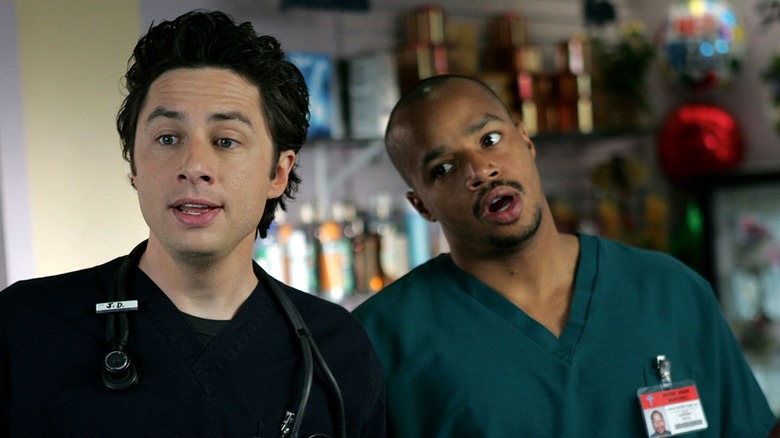
8. Self-Sabotaging
A common reaction to childhood trauma is self-sabotaging behaviour. In his romantic relationships JD has this in spades. Throughout the run of the show JD has more romantic partners than the rest of cast put together. It is acknowledged that JD goes from relationship to relationship with alarming speed and breaks them off for shallow reasons. Again, he may be trying to seek the love and security he never had in childhood.
JD’s damaged psyche is put on full display when after spending the majority of the series chasing Elliot she finally leaves her loving boyfriend for him. JD immediately decides he doesn’t want her anymore to many fans outrage (Series 3 Episode 20 ‘My Fault’).
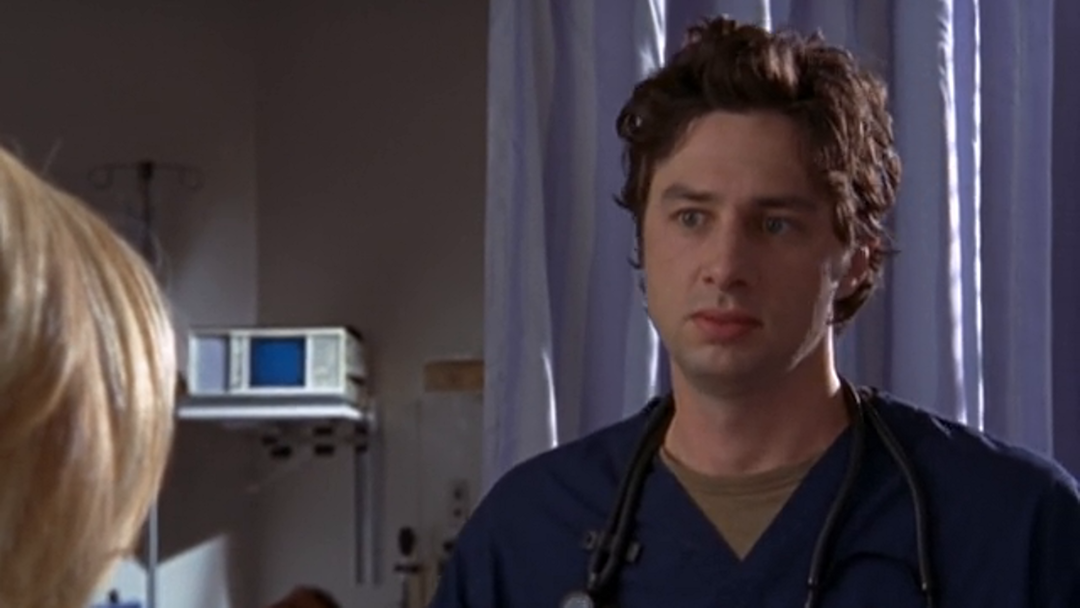
9. No Therapy
As well as never actually seeing his mother, we never see JD engaged in any kind of therapy. All of the other characters attend various types of therapy throughout the series. JD does not, despite arguably needing it the most. Is JD perhaps too scared of what therapy might uncover or not want to deal with his trauma head on?
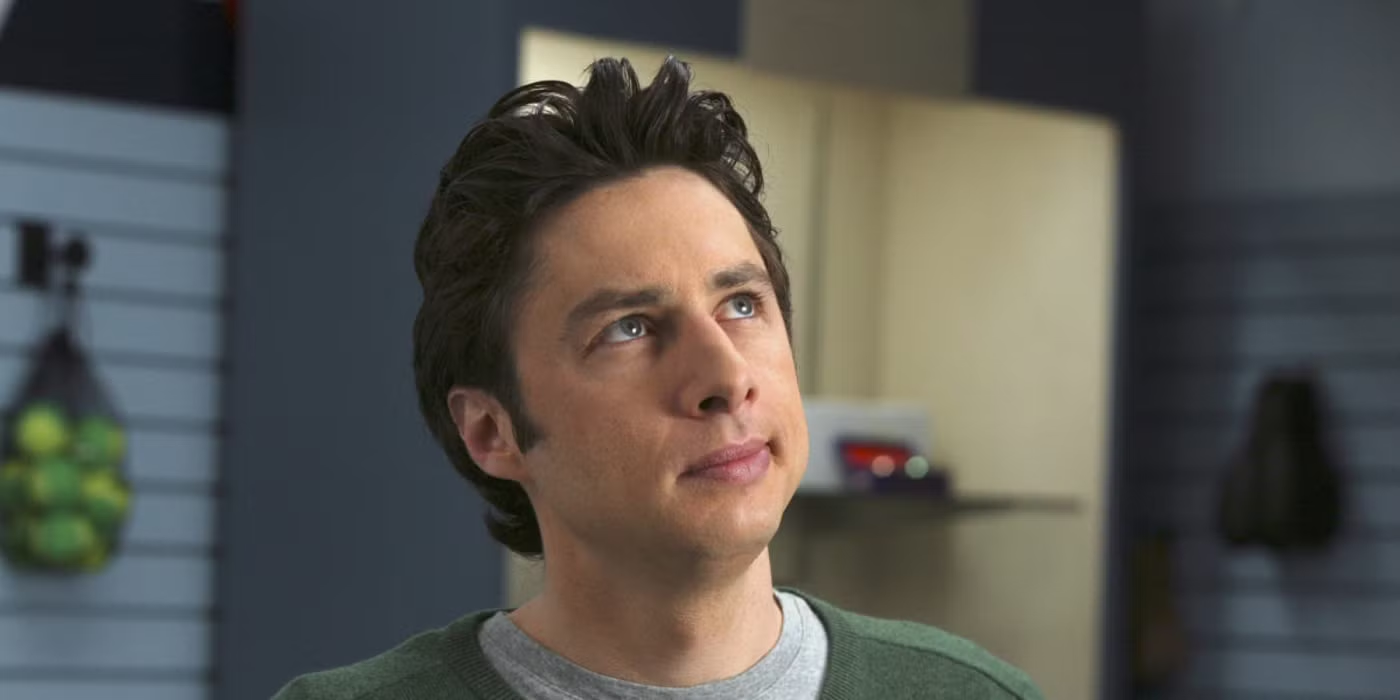
10. Overactive Imagination
During Scrubs entire run (except the final series thou shalt not be named) hinges on JD’s overactive imagination. His outlandish fantasies make for excellent comedy and unique sequiturs to break up the storylines. But what if this was yet another coping mechanism for the hapless leading man?
Children from challenging background often disappear into elaborate fantasy worlds in order to escape their surroundings. Is this a habit JD could never quite kick? It would explain why he doesn’t seem to have a lot of control of his daydreaming despite being an adult. It is a comfort and a way to deal with the difficult stuff life throws at him.
If any or all of these speculations are true Scrubs goes from being a mere half-hour sitcom to a story of one man’s triumph over his dark past. Despite his flaws and failings JD has still made something of himself and is surrounded by his chosen family; all of whom love him for who he is. This is extremely inspiring.
-
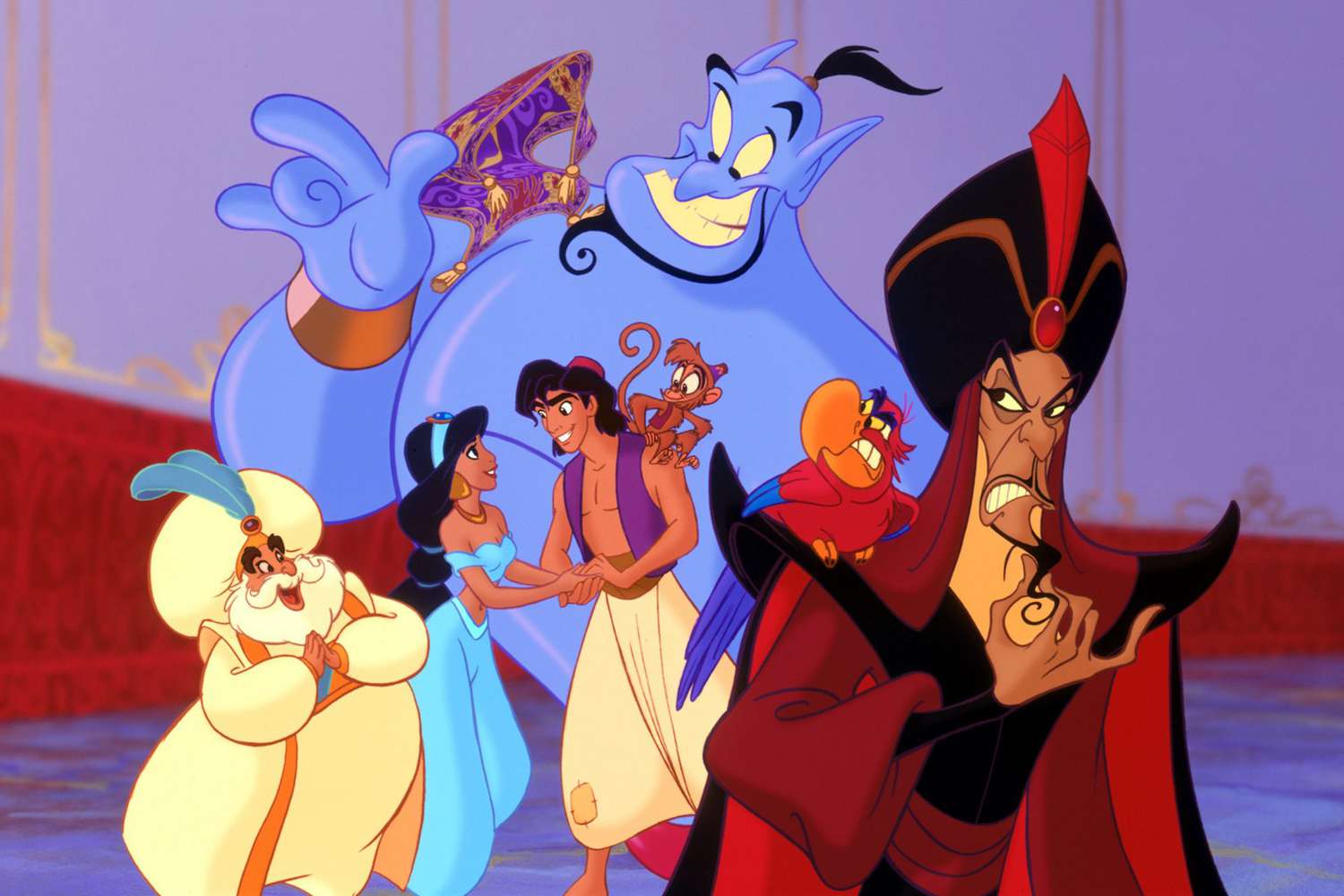
 Movie13 hours ago
Movie13 hours agoTop 10 Unexpected Movies Where The Bad Guy Wins
-
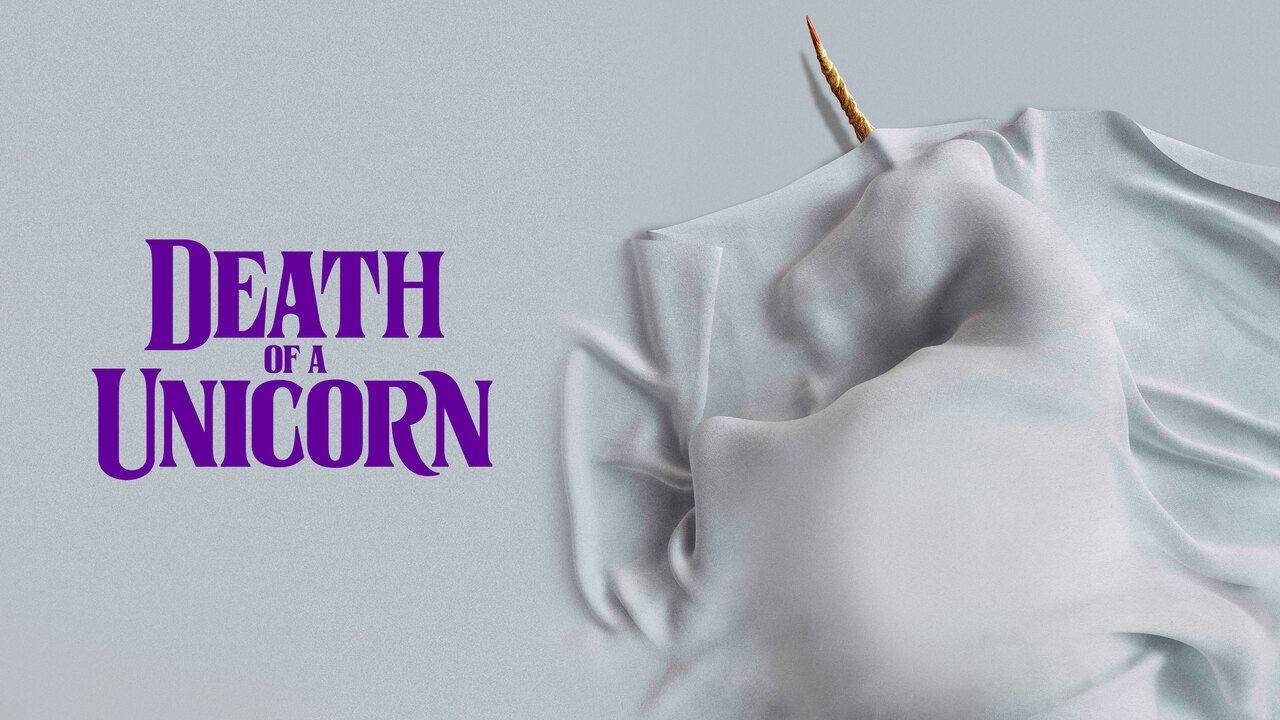
 Movie4 hours ago
Movie4 hours ago“Death of a Unicorn: A24’s Twisted Fairytale You Won’t Forget”
-
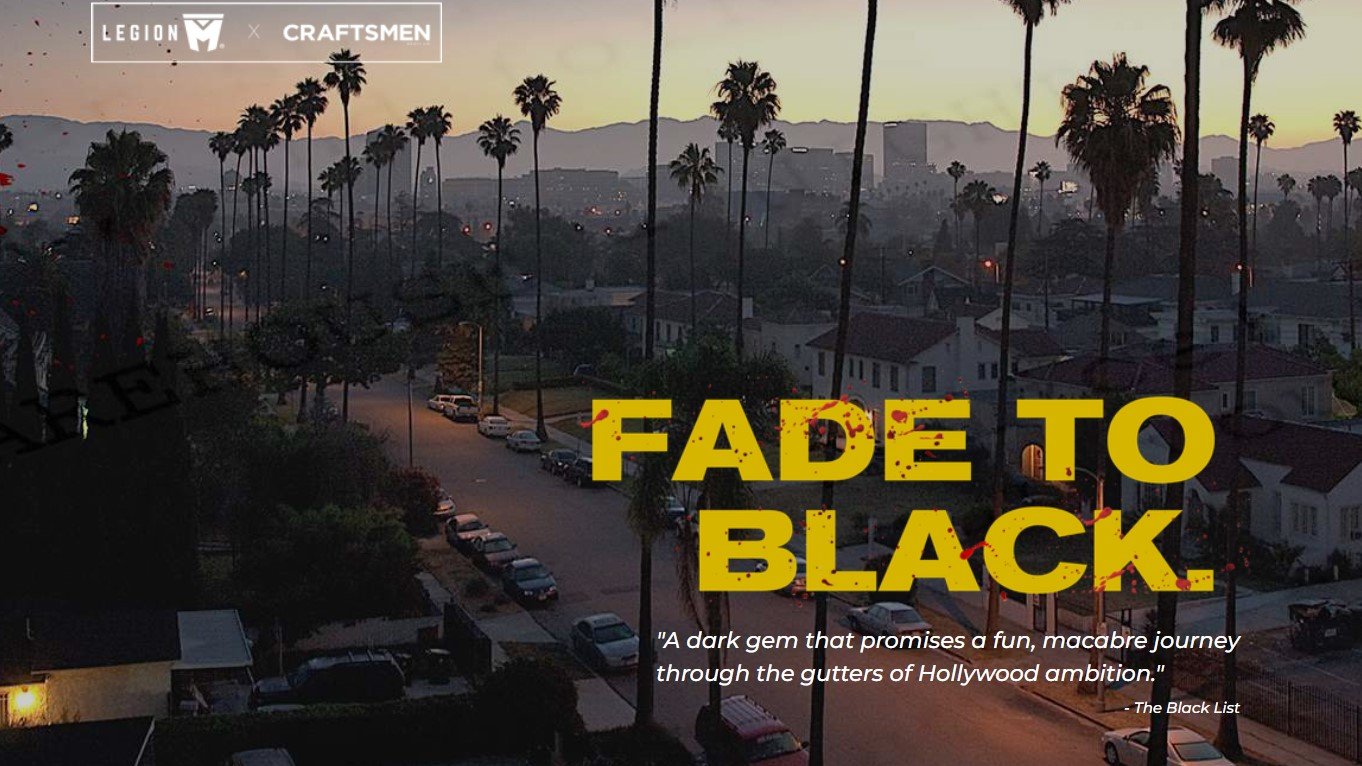
 Interviews13 hours ago
Interviews13 hours agoWonderCon 2025: Fade to Black Interviews
-

 Interviews8 hours ago
Interviews8 hours agoWonderCon 2025: A Faith Full Dickens Tale & The King of Kings Animated Movie



